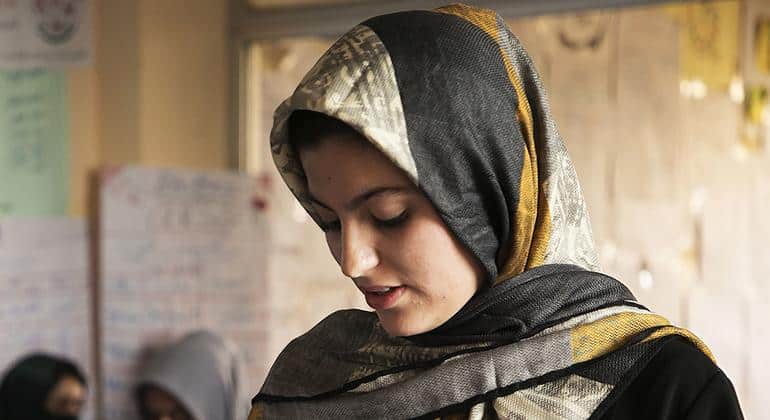Sure! Here’s the translation into American English:
—
In Afghanistan, the restrictions imposed on women since the Taliban took power in 2021 have resulted in a devastating impact on their ability to work and economically contribute. Shirzoy, an esthetician from Qala-e-Naw, witnessed the disappearance of her beauty salon, which represented not only her source of income but also a space for self-expression. She recalls feeling “devastated” and falling into depression after the ban stripped her of one of the reasons that gave her life meaning. This situation has led to estimated losses of over $2 billion in the country’s Gross Domestic Product and an alarming drop in per capita income, which has nearly halved.
Despite these challenges, the female employment rate in Afghanistan remains a scant 7% in 2023. However, small businesses have emerged as one of the few viable options for the 80% of households led by women. These ventures not only provide a source of income but also serve as spaces for solidarity and emotional support in an increasingly restrictive environment.
Since the United Nations Development Programme (UNDP) began supporting the establishment of women-led businesses, it has trained 80,000 female entrepreneurs to date, creating 400,000 jobs. Shirzoy, now at the helm of a crafts business, has found renewed purpose in this new chapter. She shares that “working with other women has improved my mental health” and that receiving international orders has restored her hope.
In Herat, Shabita, director of ARS Saffron, highlights how a European Union-funded initiative has enabled her to modernize her business and hire 20 women, raising their wages. “I take pride in creating jobs for other women,” she asserts, emphasizing the importance of having an income for independence.
However, the recent enactment of the Morality Law in August 2024 has added an additional layer of difficulties. A survey conducted by the UNDP reveals that nearly half of female entrepreneurs face significant obstacles, such as the need for a male companion for travel, which increases costs and complicates the marketing of their products. Furthermore, more than a quarter have been forced to impose restrictive dress codes.
Despite these hurdles, an encouraging 76% of women entrepreneurs express determination to continue their businesses. Lack of access to financing is one of the main issues, as many depend on small loans that prevent them from registering assets in their names and, therefore, obtaining bank loans. Susan, for instance, runs a restaurant from her home, enjoying her progress but facing constant challenges due to a lack of capital.
In the rural district of Pashtun Zarghun, a community center trains over 170 women in sewing and weaving, providing a safe space where they can work freely and share their concerns. The center’s director, Mozghan, emphasizes that “here, many of us dream of working and being independent.”
The energy situation in Afghanistan also presents challenges. Electricity is expensive and unstable, leading businesswomen to adopt solar energy as a way to cut costs. In Kabul, the company Safe Path Prosperity has expanded its operations thanks to solar panels to produce feminine hygiene products, an essential resource for many women.
Afghan women are not seeking charity; they long for fair opportunities to earn income and build a better future. The growing support for women-led businesses opens the door to economic resilience and empowerment in a context marked by adversity. Access to financing and training will be key to advancing toward a more prosperous future in Afghanistan.
via: MiMub in Spanish










